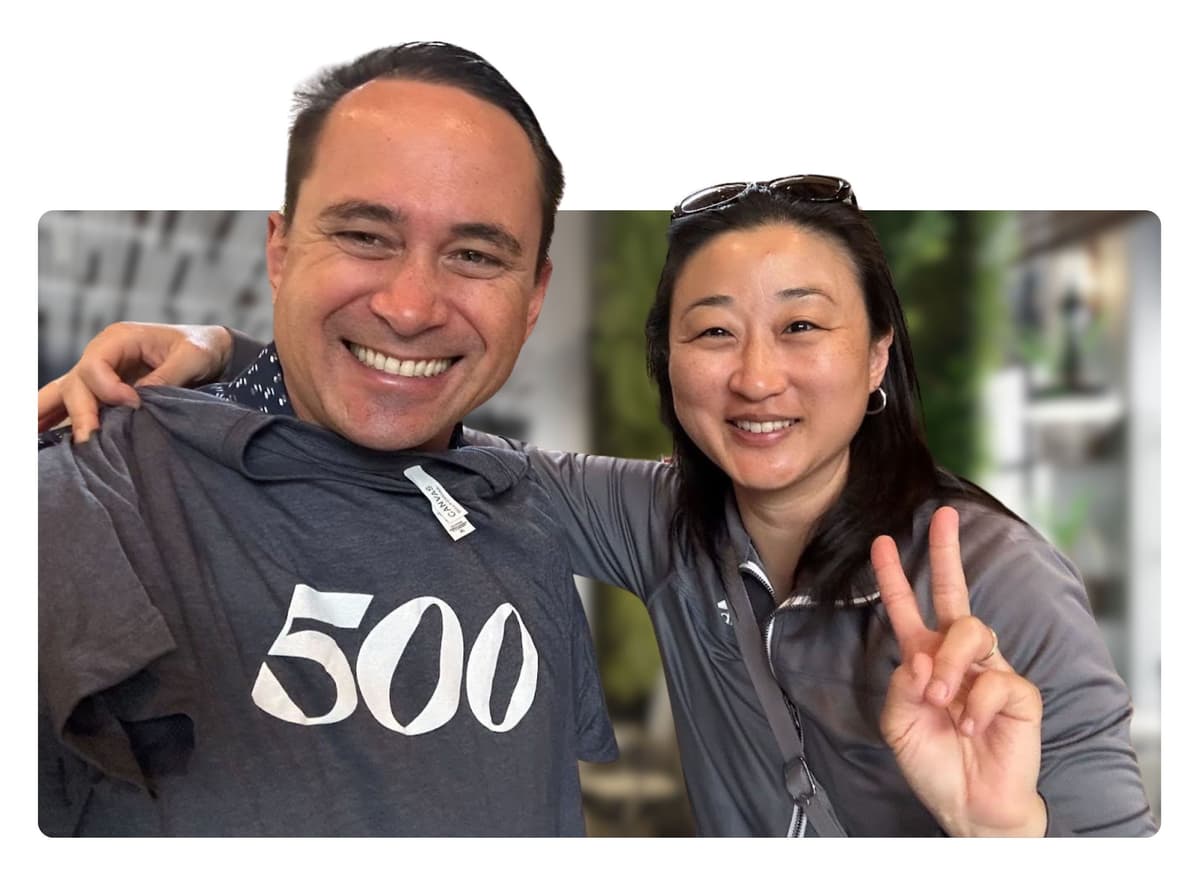Four key pieces of advice from a Batch 2 founder.
2021.01.05

500 Global Team

Lagos-native Gregory Ugwi started his career as a strategist (or “strat”) at Goldman Sachs in 2008. “As a strat, you write code and build data models while working with salespeople and traders,” he said. “You’re supporting them.” Ugwi liked everything about his job, but there was just one problem.
A portion of the data he needed to determine which companies were likely to win big, which bonds and stocks were worth buying, was increasingly available on the web. “Companies are going online, e-commerce is growing, leaving a lot of data trails where you can understand whether or not a company is going to do well,” he said. Ugwi wanted to capture that stream.
As it turned out, his former college classmate, Justin Zhen, was running into the same problem at his hedge fund job. In 2014, Ugwi and Zhen left their firms and founded Thinknum Alternative Data, a company that provides data culled from the web. Within two months, the team was admitted into 500 Startups’s accelerator program in San Francisco. They closed a $1M seed round before Demo Day, and became profitable in 2016. Last year, the company closed an $11.6M Series A to keep expanding. Ugwi’s former employer, Goldman Sachs, is now a client.
Not that the journey was easy. Here’s what Ugwi learned at 500.
Focus on distribution, not just problem and product.
When Ugwi got into Batch 9, he was focused on building a product that would aggregate online data. However, mentors at 500 encouraged founders to look beyond the product. “It was sort of emphasized to us, and I take it with me still today, that you have to spend a lot of time on distribution,” says Ugwi. “How do you enter markets? How do you build a brand? How do you recruit people? How do you get in front of people? How do you sell and scale? I’ll say, I was kind of lacking in that area.” Ugwi and Zhen worked on building out those essential skills.
Experts are great; peers might be better.
Ugwi said he still keeps in touch with his 500 batchmates and follows their journey. He thinks maintaining relationships with highly-motivated, bright founders at similar stages in their businesses is something every new founder should do.
He likens connecting with other founders to kids taking apart a gadget and reassembling it together. “It’s the process of seeing how something is put together,” said Ugwi. “In doing that, you learn the most. Even learning from an expert is not the same as doing it with your peers and seeing them struggle day-to-day.”
Frame fundraising the right way in your mind.
Beyond preparing a great pitch deck and practicing his pitch, Ugwi said a couple things were important. “First, you’ve got to have authentic confidence in your story,” he said. “You have to know your metrics, your business inside and out, but you have to have confidence in your business and project that to investors.” He says to think about fundraising like a job or performance.
Second, remember what fundraising actually is. “It’s not a reward,” Ugwi said. “You have to explain to people how they are going to win returns, how you’re going to win as a company, how you’re going to impact the market.” He recommends keeping in touch with VCs, but to focus more on customers and growth, versus fundraising. If you focus on the former, the latter will come.
Learn fast, and then let go.
In the earliest days of your startup, so much is new. Ugwi had never hired anyone, so he had to learn how to recruit. He had never raised a round, so he had to learn how to fundraise. He had not coded in Python or Javascript, so he had to learn that too. “Your company grows as fast as you grow,” he said. “Many times, you are the limiting factor. If you can learn how to design a better product, learn how to market, learn how to sell, learn how to fundraise, then your company grows.” The best founders, he observed, learn fast.
As a company grows, the founder no longer needs to wear as many hats, and should recruit people who are skilled at what they do. Thinknum’s first hires were a frontend engineer, backend engineer and designer. “Over time, you will have to split off and hire people who are better than you, and that is how your company will grow [into the next stage].”



